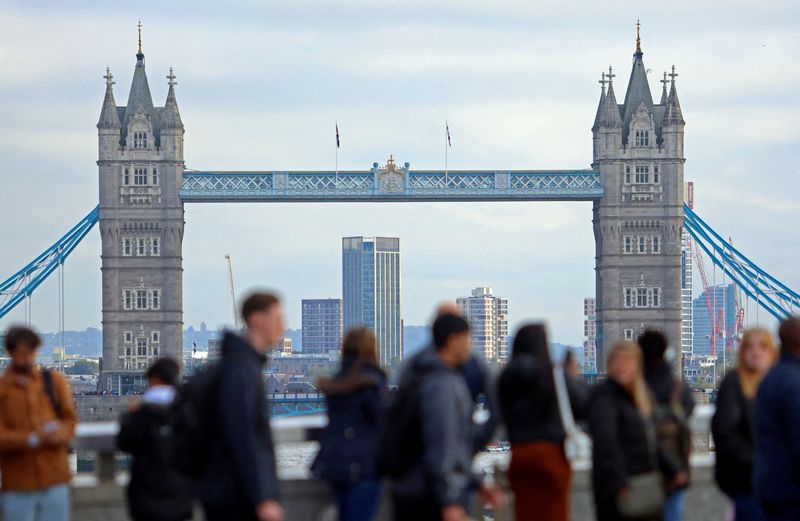
LONDON (Reuters) – British economic output rose for the first time in three months in November but at a slower pace than expected, increasing 0.1 percent compared with October, data from the Office for National Statistics showed on Thursday.
The figures represent the first measure of GDP in the period following Finance Minister Rachel Reeves' Budget on October 30, which included increases in the tax burden on employers.
A Reuters poll of economists expected monthly growth of 0.2%.
In October and September, British GDP contracted by 0.1%.
Liz McKeown, director of economic statistics at the Office for National Statistics, said: “The economy remains broadly stable, having grown slightly in November following two small declines in the previous months.”
Reeves said after the data was published that she was “determined to move faster to revive economic growth.”
The British pound fell, falling by about five cents against the US dollar.
The British economy, which has been slow to recover from the Covid-19 pandemic, showed zero growth in the third quarter when uncertainty over the upcoming budget hit businesses. The Bank of England expects further stabilization in the last three months of 2024.

Concerns about weak growth contributed to a recent rise in government borrowing costs before they fell sharply on Wednesday after a surprise drop in inflation in Britain and price growth data in the United States.
The Labor government says it is targeting the fastest per capita GDP growth among the Group of Seven advanced economies.







